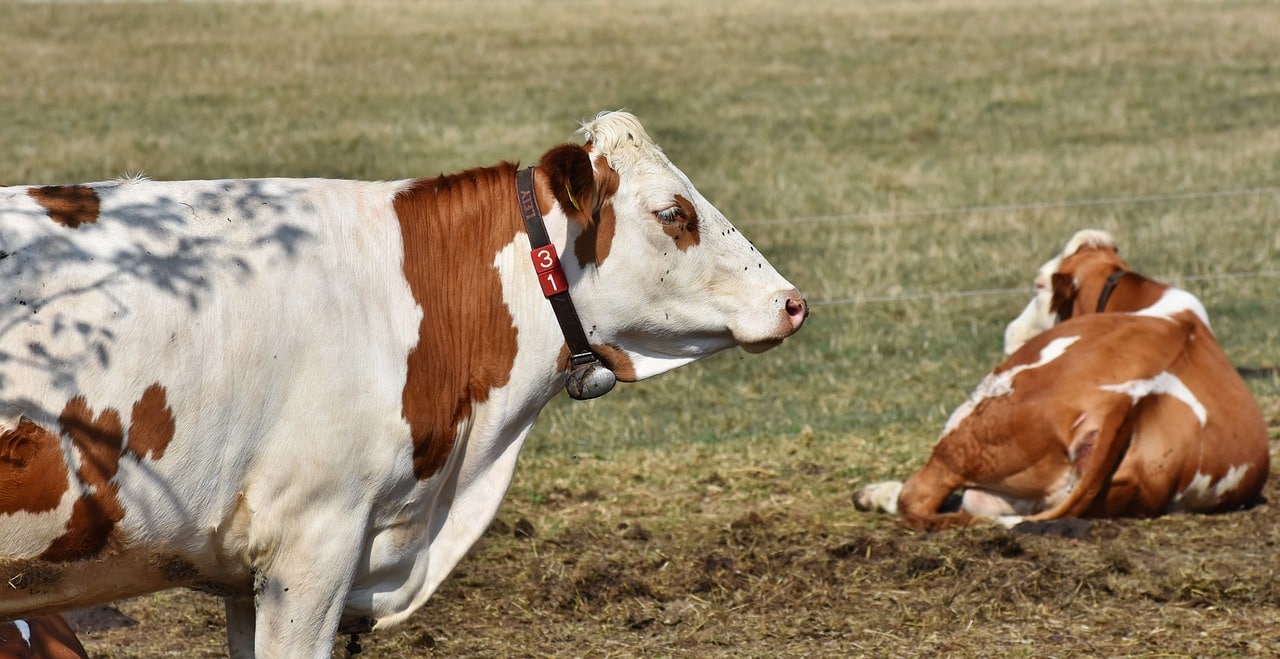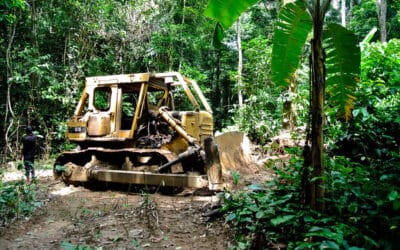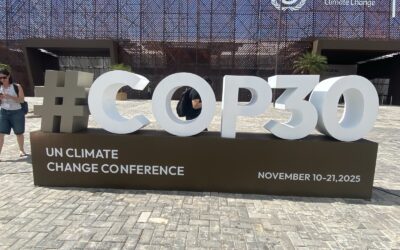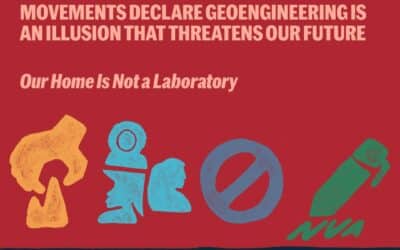18 Nov, Sharm El Sheikh: Incentives to produce and export meat and animal feedstocks like soy in major producer countries like Brazil, Paraguay, and Argentina are a leading cause of deforestation and biodiversity loss says a new briefing paper [1] launched by the Global Forest Coalition (GFC) [2] at the Convention of Biodiversity’s (CBD) Conference of Parties in Egypt today [3]. Such subsidies must be phased out by 2020 to conserve biodiversity, in line with the Aichi Target 3 [4], while positive incentives should be developed to support alternatives, says the paper.
The livestock and feedstock industry (mainly soy) in what the paper refers to as the three ‘United Soy Republic,’ countries are receiving significant incentives like subsidies and tax cuts.
Brazil, for example, continues to be one of the countries with the highest deforestation rates on the planet. Between 2005 and 2015, the Brazilian government invested 3.18 billion $ in the livestock industry, 90% of which went to just three corporations. In 2017, 48 billion $ went to agribusiness companies in the form of cheap credit [5]. In comparison, only 115.6 million $ was allocated to combating deforestation and forest degradation.
The Paraguayan Chaco region is being deforested at the rate of 1,000 hectares per day due to cattle ranching and soy monocultures, the highest rate of deforestation in the world. Meat and soy companies here are receiving multiple tax incentives [6].
“The CBD is talking about ‘investing in biodiversity’, but we need to talk about divesting from biodiversity destruction. Meat and soy are the top two contributors to deforestation, we must eliminate financial and other support for these sectors,” said Isis Alvarez, GFC’s livestock campaign coordinator.
Aside from deforestation, the livestock industry causes significant negative impacts on local communities, animal welfare, and the environment; enjoying what the paper calls a ‘free pass to pollute.’ “Much of the land for livestock in Paraguay was acquired via land grabbing, while wages paid by ranching operations are a third of the national minimum wage,” said Dr. Miguel Lovera Rivas, director of GFC’s Paraguayan member group Iniciativa Amatocodie.
The industry will become strengthened by trade agreements with top importers like the European Union, which is in the midst of negotiating the EU Mercosur Free Trade Agreement with the region [7] to get more quotas of meat. “EUs imports are directly incentivising unsustainable meat production, this will further increase deforestation, especially in sensitive areas like the Amazon,” said GFC’s director, Dr. Simone Lovera-Bilderbeek.
As alternatives to support biodiversity conservation the paper proposes a rapid reduction in meat and dairy consumption and incentives for small-scale, localised and ecologically sound food production and community conservation initiatives.
NOTES
[1] The paper can be found at this link: https://globalforestcoalition.org/perverse-incentives-deforestation-for-livestock
[2] Global Forest Coalition is a worldwide coalition of almost 92 NGOs and Indigenous peoples’ organizations from 60 different countries striving for rights-based, socially just forest conservation policies. Link: https://globalforestcoalition.org/media
[3] The Fourteenth meeting of the Conference of the Parties (COP 14) is being held in Sharm El-Sheikh, Egypt from 17 – 29 November 2018: https://www.cbd.int/conferences/2018
[4] The UNCBDs Aichi target 3 states – By 2020, at the latest, incentives, including subsidies, harmful to biodiversity are eliminated, phased out or reformed in order to minimize or avoid negative impacts, and positive incentives for the conservation and sustainable use of biodiversity are developed and applied, consistent and in harmony with the Convention and other relevant international obligations, taking into account national socio-economic conditions.
[5] Brazils Agriculture and Livestock Plan (also known as the “Safra Plan”), for the agricultural year 2016/2017, allocated about US $48 billion to finance agribusiness.
[6] There are multiple incentive systems for capital investment in Paraguay: the Fiscal Incentives Act, promoting domestic and foreign capital investments; the Investment Law, establishing equality between national and foreign investments; and the Law of Guarantees for Investments, establishing a fixed income tax rate for 10 years. Slaughterhouses benefit from Paraguay’s electricity production surplus, providing energy at the lowest price in South America.
[7] See paper by Global Forest Coalition called “The whole of Mercosur in exchange for a plate of beef” here: https://globalforestcoalition.org/wp-content/uploads/2018/04/EU-Mercosur-EN.pdf
After 20 years of negotiations, the EU-Mercosur Free Trade Agreement (FTA) is entering a crucial stage. The agreement is mainly cantered on exports of Mercosur beef in exchange for lowered tariffs on leading EU exports such as cars and machinery.
Contact in Egypt:
Ashlesha Khadse (Media Officer, GFC)
Cell: 01210721400 (Egypt Cel number)
Whatsapp: +91 8600839193 (India)
Email: ashlesha@globalforestcoalition.org
Simone Lovera (Executive Director, GFC)
Global Forest Coalition
+595-981-407375 (Paraguay)
+31-6-47392511 (Europe)
simone@globalforestcoalition.org




